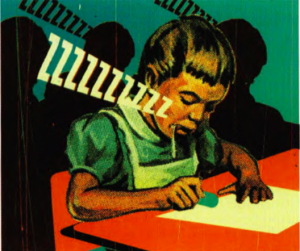This article reminded me of a TIME article I saw a couple months ago called “Wondering What Happened to Your Class Valedictorian? Not Much, Research Shows.” This article, while different than Gatto’s makes one similar point: those who do well in school are not usually the ones who end up being super successful, especially if success is measured in the amount of money that a person makes. School teaches students to think within a box with the motivation of a good grade. Creativity is not usually rewarded and while diversity of thought is encouraged, it is not at all mandatory or pushed as important. In this way, those that do well in school are often those who know how to work within a box, game a system, and get a good grade. In the real world, these skills are not necessary. Creativity is necessary because employers do not want people who could do exactly what the person sitting next to them can. Instead, employers want people who will push new ideas that could help their company advance in a forward-moving, competitive society. Even if a person is not working for a company, creativity and the ability to think differently and diversely thought is key. Steve Jobs, for example, dropped out of college after six months, yet went on to become one of the modern technological geniuses.
Overall, I believe that there are certain ways to make school productive and there are reasons why a school environment is beneficial, however classes need to be structured in a productive way and perhaps, to start, not around how to earn the highest grade.

